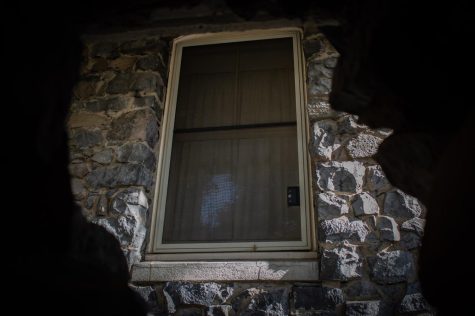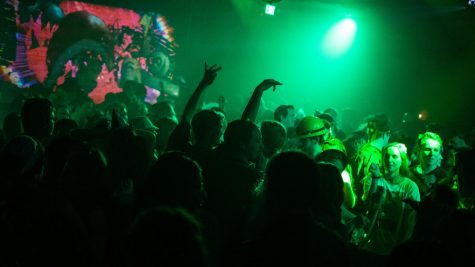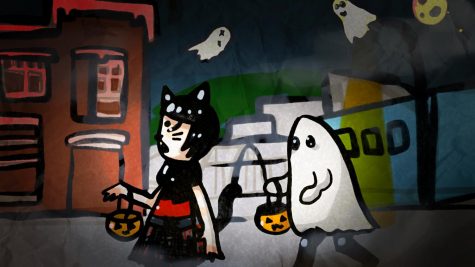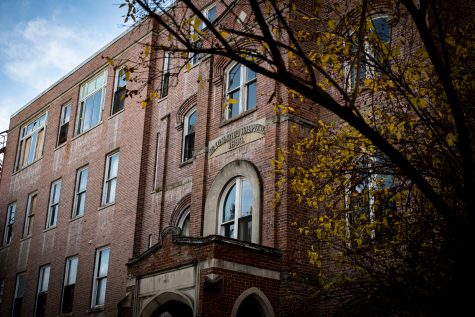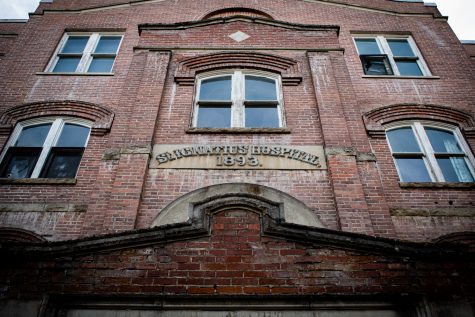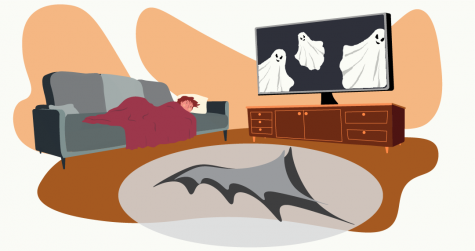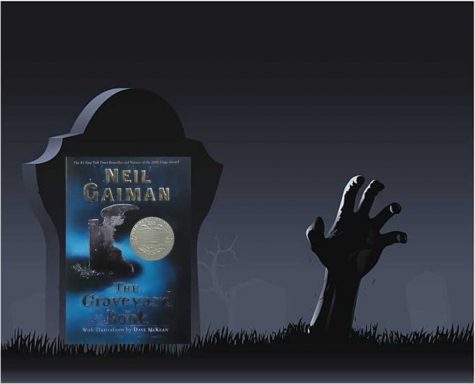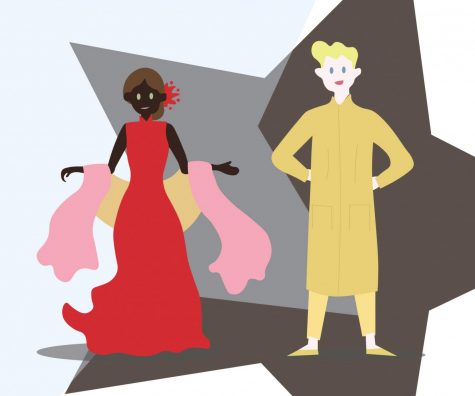Halloween deserves the hype
Day follows ‘holiday’ criteria, should be recognized as such
October 28, 2021
Every year on the last day of October, a celebration takes hold of our country. Children dress up in scary costumes to knock on strangers’ doors and request candy, while teenagers and adults go to parties and get drunk — all in well in the spirit of Halloween.
Many of you may not know this, but Halloween originates from the ancient Celtic festival of Samhain, which marked the end of the summer and the beginning of fall — a time that, though beautiful, the Celts believed to be a time associated with human death.
On Oct. 31 in particular, the Celts believed the boundary between the living and the dead blurred together, allowing the ghosts of the dead to return to Earth briefly.
The Druids would build bonfires where the Celts assembled in costumes of animal heads and skins to burn crops and animals as offerings to the Celtic deities. The Druids would then make predictions about the future with the help of the ghost spirits.
As history goes, after the Roman Empire conquered the territory inhabited by the Celts in 43 A.D., the celebration of Samhain merged with Feralia, a Roman festival to honor the Roman goddess of fruit and trees, which is where the practice of bobbing for apples comes from!
In the ninth century, Christianity swept the region and gradually replaced Celtic rites. The Christian church eventually established Nov. 1 as All Saints’ Day — a holiday celebrated like Samhain and often referred to as Hallowmas or All Hallows’ Day.
The most important part of this long-winded recap of history is that the night before All Hallows’ Day was called All Hallows’ Eve and, eventually, the holiday we all know today —Halloween.
Today, Halloween is only acknowledged as a celebration, but it deserves the recognition of a federal holiday.
Our society has incorporated many Samhain traditions into our Halloween customs, including dressing up in costumes and bobbing for apples. And yet, the U.S. Congress — the governmental body that can declare certain days to be federal holidays — continues to argue it is not enough to consider Halloween a holiday.
Some disagree.
Roman Scovel, junior psychology and criminal justice double major, said he believes Halloween does not have any ceremonial or spiritual meaning among the people who practice it, which is why it should not be considered a federal holiday.
“If you ask someone what the significance of Halloween is, they will likely say that it is about getting candy, watching a scary movie or partying,” Scovel said.
Similarly, freshman psychology major Cristal Ibarra said she believes Halloween has no means of being considered a federal holiday because it is merely a day where people dress up and eat candy.
Although Halloween has strayed slightly from the original meaning of the festival, this can also be said about current federal holidays.
Many people view Christmas as a day of receiving gifts from a guy dressed in red and white clothing rather than the birth of Christ. Likewise, many people view Easter as a day of receiving Easter baskets and hunting for Easter eggs rather than as a celebration of the resurrection of Christ.
These holidays — Christmas and Easter — may hold no ceremonial or spiritual meaning to the people who practice them, and yet they are still considered federal holidays in the eyes of Congress.
One of the most popular arguments against Halloween being considered a federal holiday is the lack of religious significance, which was the main argument for students Scovel and Ibarra.
Scovel compared Halloween to the Day of the Dead, saying the difference between the two was the existence of deep ceremonial and spiritual meaning for those who celebrate the Day of the Dead.
Similarly, Ibarra said that federal holidays need to have meaning backed by centuries of celebration, like Christmas and Easter. She believes that Halloween does not have any meaning, and most people only want the celebration to become a federal holiday to get an extra day off work and school.
As previously stated, Halloween does have religious significance. It is backed by centuries upon centuries of tradition, which is why I find it astonishing our country continues to ignorantly believe it does not originate from a place of religion.
Why does our society tend to overlook the religious aspects of Halloween? Does our government have a hand in it?
The U.S. claims not to favor particular religious groups, but I beg to differ if our government endorses Christian traditions and brushes aside non-Christian traditions, merely passing them off as celebrations rather than official federal holidays.
Like any other federal holiday, Halloween is a time where family and friends rejoice and enjoy the festivities with each other. So, remember my little history lesson on Halloween and tell your friends.
Halloween deserves to be a federal holiday, and I will not rest until it is one.










